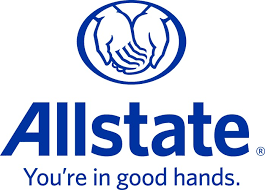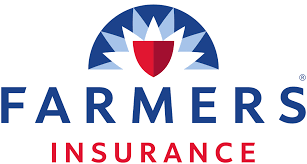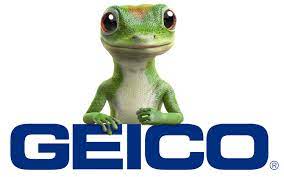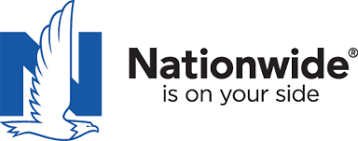Landlord insurance
 Landlord insurance is a type of insurance policy designed for someone who rents out a home they own. It typically includes two different types of coverage: property and liability protection. Liability coverage is a standard offering in most landlord insurance policies. Liability insurance on a landlord’s policy will cover liability due to bodily injury or property damage arising from the ownership, maintenance, and use of the rental premises.
Landlord insurance is a type of insurance policy designed for someone who rents out a home they own. It typically includes two different types of coverage: property and liability protection. Liability coverage is a standard offering in most landlord insurance policies. Liability insurance on a landlord’s policy will cover liability due to bodily injury or property damage arising from the ownership, maintenance, and use of the rental premises.
Liability on a landlord policy will not cover any liability due to personal exposures or any other exposure outside of occurrences arising from ownership, maintenance, and use of the rental property. If you have a mortgage on the home you’re renting to tenants, you may find that your lender requires you to have landlord insurance.
A mortgagee is more concerned about property damage coverage to the dwelling itself than liability insurance for the property owner. Landlord insurance typically provides coverage for the structure of the home. Liability coverage may help prevent you from paying out of pocket if you are found at fault in certain situations arising from the ownership, maintenance, or use of the insured rental premises.
START FREE ONLINE QUOTE NOW
At Blake Insurance Group, we respect your privacy. Your personal information is used solely for quote purposes and is not shared or sold
How Much Does Landlord Insurance Cost?
Landlord insurance policies usually cost about 25% more than homeowners insurance policies, according to the Insurance Information Institute. However, the exact cost of landlord insurance can vary depending on a number of factors, including the location of the rental property, the value of the property, the type of coverage you need, and the insurance company you choose. Here are some additional details about the cost of landlord insurance:
Average cost: The average cost of landlord insurance was $1,478 in annual premium, and the average cost of homeowners insurance was $1,192 as of a few years back. Landlord insurance costs about 25% more than an equivalent homeowners insurance policy. The average annual premium for homeowners insurance in 2021 is $1,312 (or around $109 per month), based on a policy with a dwelling coverage limit of $250,000. So, based on the 25% premium, the cost of comparable landlord insurance would be about $1,64.
Factors that affect cost: The cost of landlord insurance can vary depending on a number of factors, including the location of the rental property, the value of the property, the type of coverage you need, and the insurance company you choose. Other factors that can affect the price of your landlord insurance include security features, age and condition of the property, smart home devices that provide early warnings of potential issues, number of rental units, location, safety equipment on the premise, and high-risk features such as wood fireplaces, pools, and hot tubs.
Coverage options: The cost of landlord insurance can also vary depending on the type of coverage you need. For example, if you need additional coverage for things like loss of rental income or vandalism, your premium may be higher. Optional landlord liability coverage can also increase the cost of your policy.
Discounts: Many insurance companies offer discounts for bundling policies, such as combining your landlord insurance policy with your home or auto insurance policy. This can help lower the cost of your monthly premium
What does landlord insurance cover?
Landlord insurance is a type of insurance policy designed for someone who rents out a home they own. It typically includes two different types of coverage: property and liability protection. Here is a breakdown of what is covered by landlord insurance in terms of property protection:
– Dwelling: This coverage helps pay to repair your rented home, condo, or apartment if it’s damaged by fire, lightning, wind, hail, or other covered losses.
– Other structures may include structures on your property that are not attached to your home, such as a detached garage or shed.
– Equipment: Landlord insurance may cover the equipment you keep on-site to help maintain the property, such as lawnmowers and snow blowers.
It’s important to note that landlord insurance generally does not cover your tenant’s possessions (electronics, clothes, etc.). Your tenants must purchase their own renters’ insurance policy for that protection.
Landlord liability insurance is a type of insurance coverage that protects landlords in case someone gets hurt on their rental property. Liability coverage pays for lawsuits against you or things you’re liable for. Landlord liability insurance can protect you from the crippling financial impact of a lawsuit against you. Investing in landlord liability insurance is a good idea since it helps protect you from paying out of pocket in many situations.
Liability insurance for a rental property can help a landlord in several ways. For example, if the rental property has defective flooring that causes a tenant to trip and fall, resulting in a severe injury. In this case, you’re liable for the accident since you failed to maintain the property. That’s when your landlord liability insurance would kick in, providing you with the coverage you need to cover legal expenses and ensure your tenant gets proper medical care.
Here are some things that landlord liability insurance typically covers:
– Tenant damage or tenant guest injury
– Medical and legal bills that arise from injuries on the rental property
– Legal fees
– Property damage
– Loss of rental income
– Burglary, vandalism, and non-occupied dwelling coverage (optional endorsements)
It’s important to note that landlord insurance generally does not cover your tenant’s possessions (electronics, clothes, etc.). For that protection, your tenants must purchase their renter’s insurance policy.
Landlord insurance is an important investment for anyone who rents out a home they own. It can help protect you from financial losses due to property damage or liability claims. Make sure to talk to your insurance broker to understand what coverage you need and what is included in your policy. Landlord liability insurance is highly recommended to protect you from the financial impact of a lawsuit against you.
How to find the right landlord insurance policy
If you rent your property for short-term stays, it’s important to ensure you have the right insurance coverage. Here are some tips on how to find the right landlord insurance policy:
Determine what coverage you need: Before shopping for landlord insurance, you must determine what coverage you need. Consider the value of your property, the amount of rent you collect, and any potential risks associated with renting out your property.
Shop around: Once you know what coverage you need, it’s time to start shopping around for insurance policies. You can start by checking with your current insurance provider to see if they offer landlord insurance. You can also compare policies from different insurance companies to find the best coverage at the best price.
Consider short-term rental coverage: If you plan to rent out your property for short-term stays, you may need to add home-sharing coverage to your landlord or homeowners policy. Some insurance companies offer short-term rental insurance as an endorsement or rider, while others may require a separate policy.
Look for customizable policies: If your rental activities are evolving, you may want an insurance carrier that offers a more customizable and scalable policy option. This will provide flexibility so you can adapt your coverage to meet your needs, as they may change year over year.
Don’t forget liability coverage: Liability coverage is standard in most landlord insurance policies. Liability insurance on a landlord’s policy will cover liability due to bodily injury or property damage arising from the ownership, maintenance, and use of the rental premises. Liability on a landlord policy will not cover any liability due to personal exposures or any other exposure outside of occurrences arising from ownership, maintenance, and use of the rental property.
Finding the right landlord insurance policy is important to protect your investment and yourself from potential financial losses. Make sure to determine what coverage you need, shop around, consider short-term rental coverage, look for customizable policies, and don’t forget liability coverage.
Steadily Landlord insurance
 Steadily offers additional options such as builder’s risk insurance, which covers property damage for a property being repaired or flipped with the intent to rent or sell the property eventually. They also offer specialized landlord insurance for short-term rentals, such as Airbnb and Vrbo properties.
Steadily offers additional options such as builder’s risk insurance, which covers property damage for a property being repaired or flipped with the intent to rent or sell the property eventually. They also offer specialized landlord insurance for short-term rentals, such as Airbnb and Vrbo properties.
Builder’s risk insurance: Steadily offers builder’s risk insurance, which covers property damage for a property being repaired or flipped with the intent to rent or sell the property eventually.
Short-term rental insurance: Steadily offers specialized landlord insurance, such as Airbnb and Vrbo properties, for short-term rentals. These properties have different and often higher risks than long-term rentals, and many insurance companies do not provide coverage. Steadily stands out in this regard.
Policy flexibility: Steadily’s standard policies cover up to 20 locations per policy and 40 locations per individual, making them an ideal choice for landlords who own multiple rental properties.
Other coverage options: Steadily offers other coverage options, including umbrella insurance, renters insurance, tenant liability insurance, and more.
QUBIE Landlord Insurance
 QUBIE Landlord Insurance for the Modern Investor: SES Risk Solutions offers a comprehensive and competitive nationwide property and casualty insurance solution tailored to the unique needs of a residential property owner. They have recently launched QUBIE, a proprietary Insurtech platform for landlord insurance. QUBIE enables insurance brokers to instantly quote a single-family (1-4 unit) long-term rental property insurance policy.
QUBIE Landlord Insurance for the Modern Investor: SES Risk Solutions offers a comprehensive and competitive nationwide property and casualty insurance solution tailored to the unique needs of a residential property owner. They have recently launched QUBIE, a proprietary Insurtech platform for landlord insurance. QUBIE enables insurance brokers to instantly quote a single-family (1-4 unit) long-term rental property insurance policy.
QUBIE is built on leading-edge technology and 30 years of experience in the insurance industry. It provides the speed, efficiency, and coverage investors need. QUBIE offers comprehensive coverage tailored to residential investors, multiple deductible options, “A” rated carriers and lender compliance, escrow and ACH payment options, and more. QUBIE is powered by INSTANDA’s modern insurance administration platform, which allows rapid risk assessment of real property
Allstate landlord insurance
 Allstate: Allstate is a well-known insurance company that offers landlord insurance. Here is a breakdown of what Allstate landlord insurance covers and what you need to know about it:
Allstate: Allstate is a well-known insurance company that offers landlord insurance. Here is a breakdown of what Allstate landlord insurance covers and what you need to know about it:
Property protection: Allstate landlord insurance typically includes dwelling coverage, which helps protect against sudden and accidental damage to your rental property. This includes accidental damage caused by one of your tenants. Other structures protection covers stand-alone garages, sheds, and other buildings that are separate from your rental property. Equipment coverage may also be included to cover the equipment you keep on-site to help maintain the property.
Liability protection: Allstate landlord insurance typically covers financial losses resulting from property damage or liability claims. This includes tenant damage or guest injury, medical and legal bills arising from injuries on the rental property, legal fees, property damage, loss of rental income, and more. Liability coverage is a standard offering in most landlord insurance policies. Liability insurance on a landlord’s policy will cover liability due to bodily injury or property damage arising from the ownership, maintenance, and use of the rental premises. Liability on a landlord policy will not cover any liability due to personal exposures or any other exposure outside of occurrences arising from ownership, maintenance, and use of the rental property.
Coverage options: Allstate landlord insurance offers a range of coverage options, including fire and smoke, windstorm or hail, falling objects, water damage from plumbing, water heater or burst pipes (except sump pumps), and more. Allstate also offers customizable policies that allow you to choose the coverage that best fits your needs. A multi-policy discount could help lower the cost of your monthly premium if you bundle your landlord policy with another Allstate policy, such as a home or auto.
What’s not covered: Allstate landlord insurance typically does not cover floods and water (sewer) backups. Flood insurance is a separate policy you may need to purchase. The items your tenants own, such as clothing, electronics, and other personal possessions, aren’t covered under most landlord policies. You may want to suggest your tenants buy Allstate renters insurance to cover their belongings in case of a loss. Also, the Landlords Package Policy typically doesn’t cover damage due to a tenant’s vandalism unless you purchase additional coverage.
Farmers landlord insurance
 Farmers: Farmers is an insurance company that offers landlord insurance. Here is a breakdown of what Farmers’ landlord insurance covers and what you need to know about it:
Farmers: Farmers is an insurance company that offers landlord insurance. Here is a breakdown of what Farmers’ landlord insurance covers and what you need to know about it:
Property protection: Farmers’ landlord insurance typically includes dwelling coverage, which helps protect against sudden and accidental damage to your rental property. This includes accidental damage caused by one of your tenants. Other structures protection covers stand-alone garages, sheds, and other buildings that are separate from your rental property. Equipment coverage may also be included to cover the equipment you keep on-site to help maintain the property.
Liability protection: Farmers’ landlord insurance typically covers financial losses from property damage or liability claims. This includes tenant damage or guest injury, medical and legal bills arising from injuries on the rental property, legal fees, property damage, loss of rental income, and more. Liability coverage is a standard offering in most landlord insurance policies. Liability insurance on a landlord’s policy will cover liability due to bodily injury or property damage arising from the ownership, maintenance, and use of the rental premises. Liability on a landlord policy will not cover any liability due to personal exposures or any other exposure outside of occurrences arising from ownership, maintenance, and use of the rental property.
Coverage options: Farmers’ landlord insurance offers a range of coverage options, including fire and smoke, windstorm or hail, falling objects, water damage from plumbing, water heater or burst pipes (except sump pumps), and more. Farmers also offer customizable policies that allow you to choose the coverage that best fits your needs. A multi-policy discount could help lower the cost of your monthly premium if you bundle your landlord policy with another Farmers policy, such as home or auto.
Optional coverage: Farmers’ landlord insurance offers optional coverage that you can add to your policy, such as loss of rent, personal property, and personal injury. Optional landlord liability coverage can help with hospital bills and lost wages if you’re legally responsible for his injury.
SmartMove™ Solution: Farmers Insurance now offers a stress-free tenant screening solution through TransUnion. There are no setup or account fees, and you don’t have to collect personal information from applicants. All they need from you is an email address — they’ll contact the applicant and take care of the rest.
Financial ratings: Farmers is a well-established insurance company that has been in business since 1928. They have an A rating from AM Best, which indicates that they have a strong financial standing and can pay out claims.
GEICO landlord insurance
 GEICO: GEICO is an insurance company that offers landlord insurance. Here is a breakdown of what GEICO landlord insurance covers and what you need to know about it:
GEICO: GEICO is an insurance company that offers landlord insurance. Here is a breakdown of what GEICO landlord insurance covers and what you need to know about it:
Property protection: GEICO landlord insurance typically includes dwelling coverage, which helps protect against sudden and accidental damage to your rental property. This includes accidental damage caused by one of your tenants. Other structures protection covers stand-alone garages, sheds, and other buildings that are separate from your rental property. Equipment coverage may also be included to cover the equipment you keep on-site to help maintain the property.
Liability protection: GEICO landlord insurance typically covers financial losses resulting from property damage or liability claims. This includes tenant damage or guest injury, medical and legal bills arising from injuries on the rental property, legal fees, property damage, loss of rental income, and more. Liability coverage is a standard offering in most landlord insurance policies. Liability insurance on a landlord’s policy will cover liability due to bodily injury or property damage arising from the ownership, maintenance, and use of the rental premises. Liability on a landlord policy will not cover any liability due to personal exposures or any other exposure outside of occurrences arising from ownership, maintenance, and use of the rental property.
Coverage options: GEICO landlord insurance offers a range of coverage options, including fire and smoke, windstorm or hail, falling objects, water damage from plumbing, water heater or burst pipes (except sump pumps), and more. GEICO also offers customizable policies that allow you to choose the coverage that best fits your needs. A multi-policy discount could help lower the cost of your monthly premium if you bundle your landlord policy with another GEICO policy, such as home or auto.
Customer service: GEICO offers customer service that is available 24/7. You can manage and make payments for your landlord insurance policy online, update your contact information, pay bills, and request documents.
Personal property coverage: GEICO also offers personal property coverage, which protects things within your home, like your computer, comfy couch, and favorite jacket, from damage due to a covered loss. Whether you own a house condo, or rent an apartment, your property insurance policy typically includes personal property coverage.
Nationwide landlord insurance
 Nationwide: Nationwide is an insurance company that offers landlord insurance. Here is a breakdown of what Nationwide landlord insurance covers and what you need to know about it:
Nationwide: Nationwide is an insurance company that offers landlord insurance. Here is a breakdown of what Nationwide landlord insurance covers and what you need to know about it:
Property protection: Nationwide landlord insurance provides financial protection if your rental property is damaged, becomes unlivable after a catastrophic event such as a fire or a storm, or if someone is hurt on the property. Standard homeowners insurance only provides limited coverage for rental properties, which is why a separate landlord policy is necessary. A landlord policy typically covers any physical damage to the home caused by fire, bad weather, or criminal activity such as a break-in. It also covers any additional buildings, including a shed or detached garage. Equipment, like lawnmowers and snow blowers, kept on the property to maintain it, is also covered.
Liability protection: Nationwide landlord insurance can help cover that person’s medical costs, legal fees, and settlements if someone is hurt while living in or visiting the rental property. Buying landlord insurance is a safe way to protect your investment. Owning a rental property isn’t always easy, but purchasing Nationwide’s rental property coverage is one of the easiest decisions you can make as a landlord.
Coverage options: Nationwide landlord insurance offers coverage for property damage, liability, and loss of rental income. Nationwide also offers customizable policies that allow you to choose the coverage that best fits your needs. A multi-policy discount could help lower the cost of your monthly premium if you bundle your landlord policy with another Nationwide policy, such as home or auto.
What’s not covered: Nationwide landlord insurance typically does not cover floods and water (sewer) backups. Flood insurance is a separate policy you may need to purchase. The items your tenants own, such as clothing, electronics, and other personal possessions, aren’t covered under most landlord policies. You may want to suggest your tenants buy Nationwide renters insurance to cover their belongings in case of a loss. Also, the Landlords Package Policy typically doesn’t cover damage due to a tenant’s vandalism unless you purchase additional coverage.
Many insurance carriers offer landlord insurance. When choosing an insurance carrier, it’s important to consider what coverage you need, shop around, and compare policies from different insurance companies to find the best coverage at the best price.


